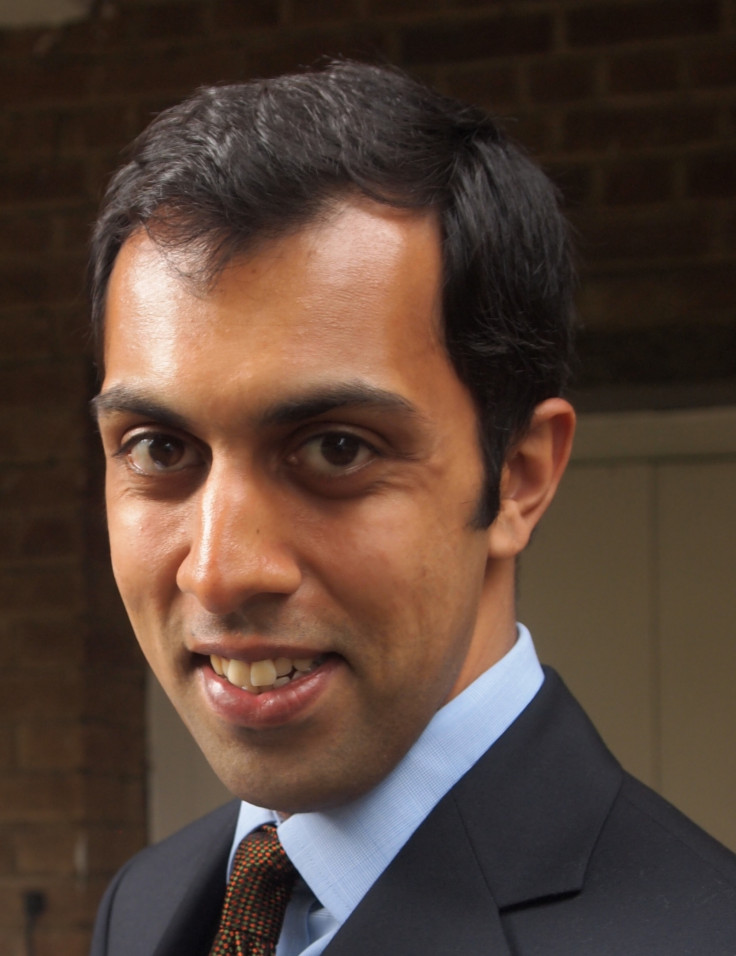The re-emergence of the Whigs could mark an old political and economic dawn

A little known fact about last week's general election is that it saw the electoral rebirth of one of Britain's oldest political parties: the Whigs.
The Whig Party, as it is officially known, has been rekindled by former British army officer Waleed Ghani.
The original Whigs, founded over 300 years ago, went on to boast 16 prime minsters before dying out as a political force in the nineteenth century. But now they're back and, although they only secured 561 votes in the constituency of Vauxhall, Ghani is talking up their free market and progressive credentials.
"It all came out of the European elections last year, there didn't seem to be a party that really stood up for the good stuff: immigration, the European Union, open markets and human rights, things that I would look for in a party. I was feeling very despondent about the state of British politics," Ghani said.
With voter turnout standing at just 66.1% and the Conservatives expected to push ahead with £12bn of austerity cuts, there has been much discussion about whether Britain requires its own version of Greece's Syriza or Spain's Podemos.
However, Ghani believes that the answers to the great economic and social questions of the age lie in British history.
"There has always been two sides of British politics. The Tory side of stability and reaction and on the other, the Whiggish side of being open minded, pro-free trade, pro-immigration and pro-social and economic liberalism. It existed with the Liberal Democrats to some degree and with New Labour in the early days, but that spirit seems to have died out and this was confirmed by the election result last week," he said.
So what does the new Whig incarnation have to offer?
Ghani defines the party's beliefs as progressive: pro-EU, pro-immigration, pro-gender equality, pro-business, pro-free market and pro-social justice.
"I don't see a contradiction in those things. We're economically liberal and, generally speaking, we should trust business to do what business does really well, but there should be limits to competition and there are some areas in which the involvement of private enterprise creates market failures. For example in the NHS, defence and prisons. Competition and private enterprise are good things to promote but only within the limits of government regulation," he said.
The Whig position is that some things are better off in state hands and others in the private sector and the "intelligent conversation" is where that boundary lies.
Ghani charges the Tories with pursuing growth for growth's sake and believes that neither Labour or the Conservatives truly understand business. For the Whigs, the goal of economic growth is to achieve social justice and enhance human rights.
He said: "I think we'd be the only party of the centre that is truly pro-business. Labour under Miliband had this fear about business and so called predatory capitalism. We are the sixth largest economy in the world because of business, most voters own their own business or want to work for a business. We need to celebrate and encourage this. The Tories look at business and the dollar signs light up in their eyes, and they get rings run round them."
He also believes that Britain's budget deficit is being used by the Tories as a convenient tool to implement what he calls "ideological cuts". He wants more business people in politics and the relationship between the two spheres rehabilitated.

Radical
Alongside the economics, the radical social justice element of the original Whigs comes through strongly. The nineteenth century version not only supported free trade but also opposed the slave trade and petitioned for increased suffrage.
Many of the current Whig policies, in particular its pro-immigration stance, are also quite radical. But just how far does this radicalism go?
Ghani said: "We'd respect the House of Lords, they have done a lot more to defend human rights and social justice than the Labour party in the recent past. We're also happy with constitutional monarchy, seeing as it was the Whigs who established constitutional monarchy in the first place. Tax evasion and avoidance are far more pressing issues."
Core vote
Since the election, Ghani has had a deluge of emails from people wanting to get involved with the new Whig Party, where will it all end up?
"By the next election we want to at least be part of the debate, and we definitely want to be part of the EU referendum conversation. We're the only party to have a picture of the European flag on our manifesto and we will be fielding serious candidates for the 2019 European elections," he said.
Although the Conservatives won a majority last week, in terms of vote shares, the election demonstrated that Britain has entered the age of multi-party politics. The Greens, Ukip and the SNP all took a significant share of the vote.
Long term, the Whig Party is aiming to tap into this trend.
"I think we do offer what people want and we're aiming for scale," Ghani said.
Success might not be that far away. UKIP was only founded twenty three years ago and last week it pulled in 3.9 million votes. If Ghani is right, British politics might be in for another shake up soon.
© Copyright IBTimes 2025. All rights reserved.





















